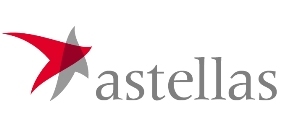Astellas Pharma Inc. and Seattle Genetics Inc. presented the Phase I bladder cancer trial data at the American Society of Clinical Oncology (ASCO) annual meeting today.
The first data for the antibody-drug conjugates
(ADCs) ASG-15ME and ASG-22ME shows higher response rates than taxanes
medications.
"Bladder cancer is the fifth most common cancer in the U.S. and there have been few treatment advances over the past three decades," Astellas affiliate Agensys SVP and Chief Medical Officer Dr. Len Reyno said. "For metastatic disease, the five-year survival rate is only 15 percent, representing a significant unmet need to identify additional treatment options. We are pleased to present these first data for ASG-15ME and ASG-22ME in urothelial cancers, which have a particularly high unmet medical need."
The ADCs are monoclonal antibodies that target tumor cells. The poster presentations show that the ASG-15ME treatment of 49 patients provided an objective response in 14 patients. Twenty-seven patients achieved complete or partial remission, or the disease was stabilized.
The ASG-22ME trial also showed a partial response in 10 of the 36 patients enrolled in the study. Twenty-five patients achieved complete or partial remission or their disease was stabilized. In addition, four patients whose cancer had spread to the liver had a partial remission.
"The clinical data from the Phase I presented at ASCO from the ASG-15ME and ASG-22ME programs in heavily pretreated metastatic bladder cancer patients show a manageable safety profile along with objective response rates that are higher than historical rates seen with taxanes," Seattle Genetics Chief Medical Officer and EVP of Research and Development Dr. Jonathan Drachman said. "We will continue enrolling patients in the ongoing phase 1 clinical trials to determine the recommended dose for further development."







 Alerts Sign-up
Alerts Sign-up